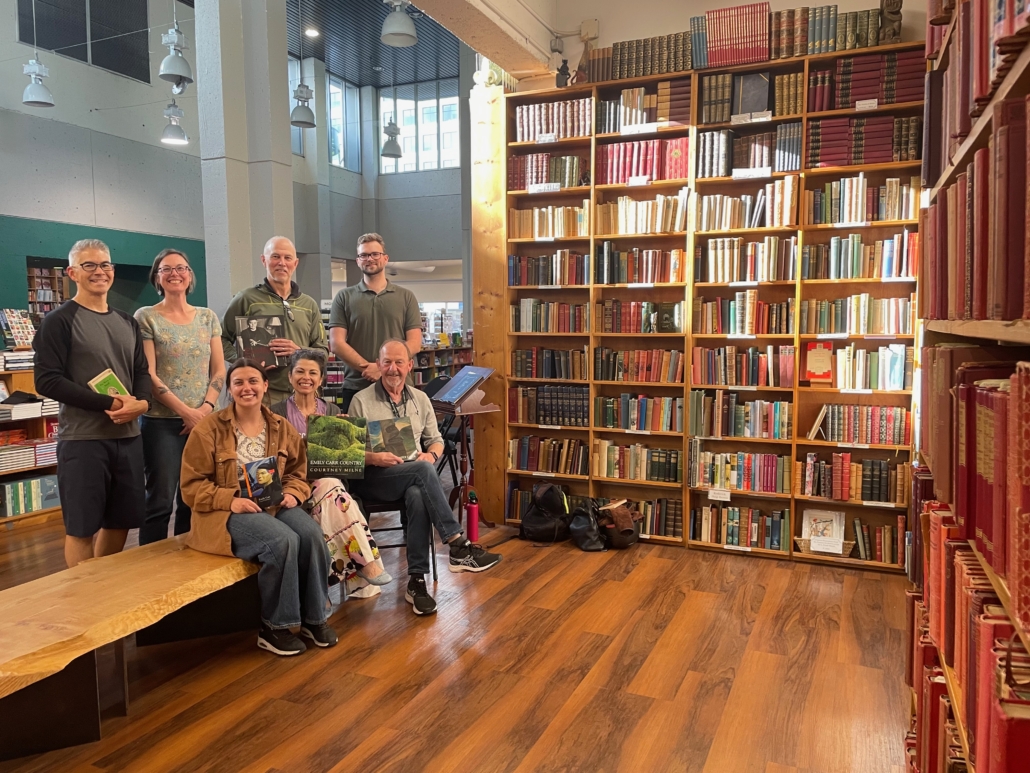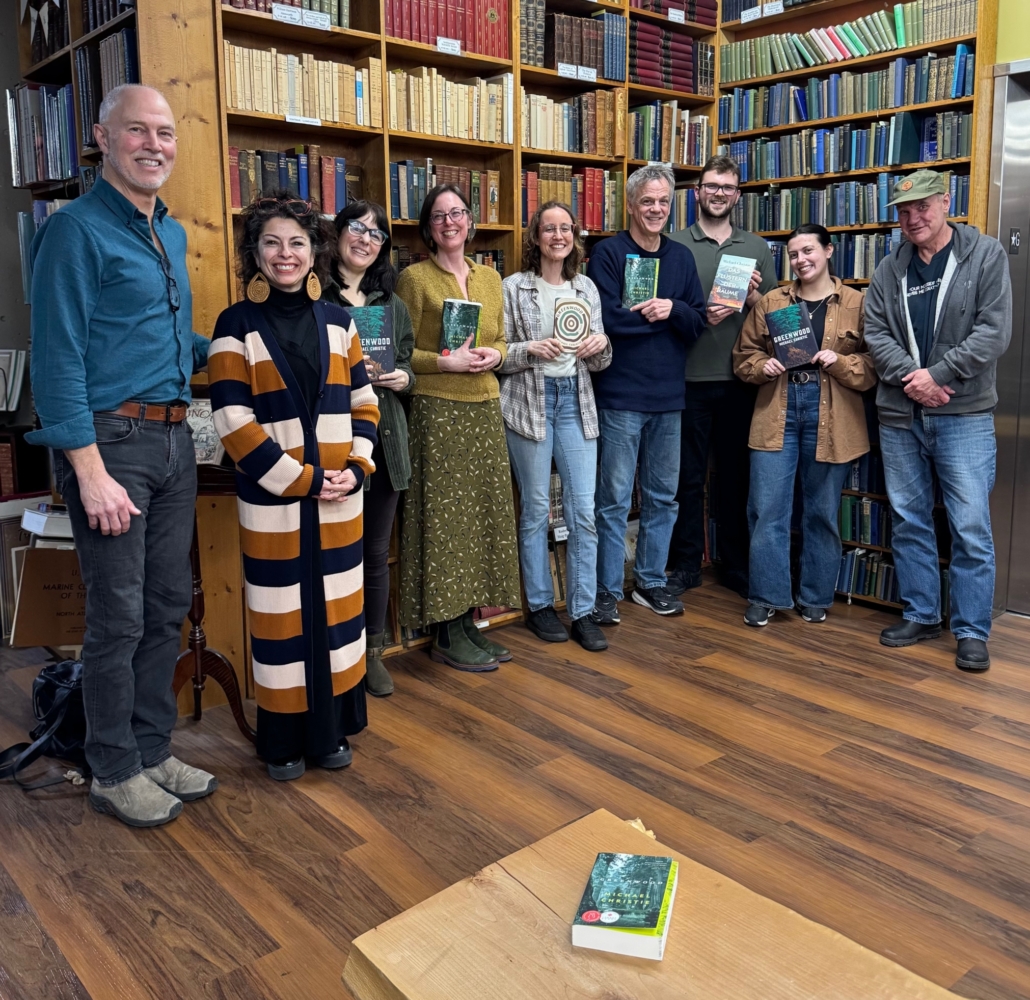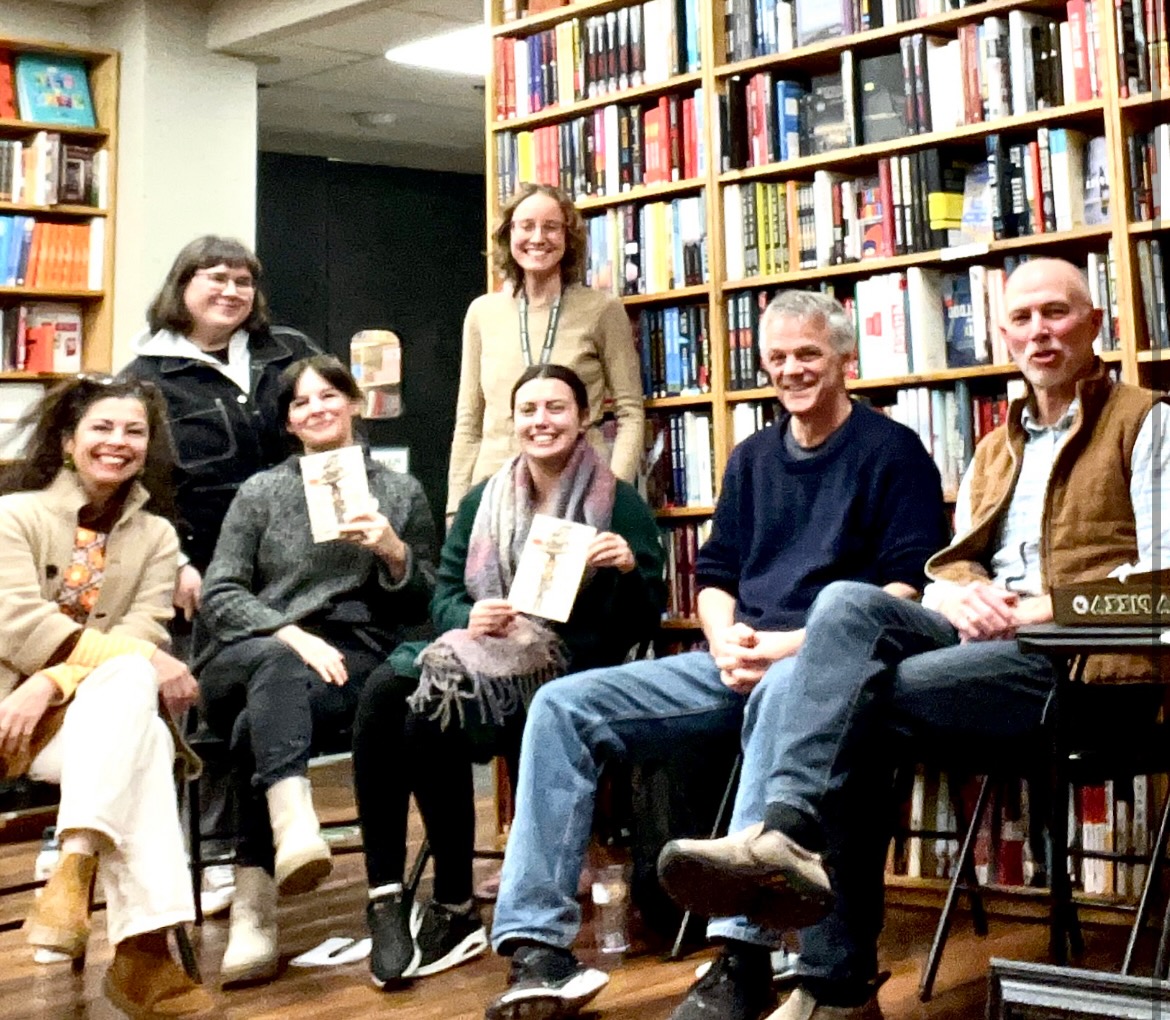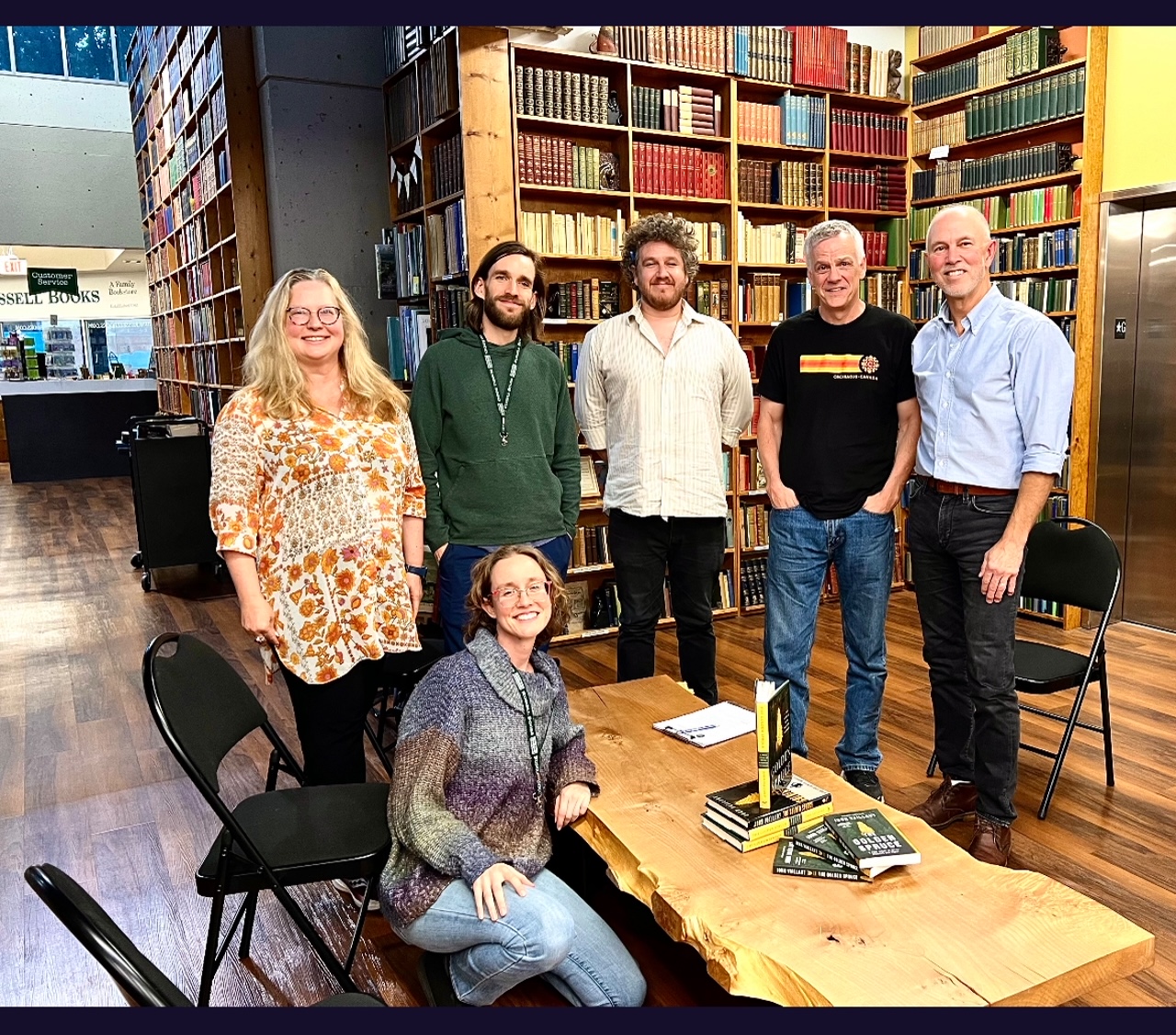For our spring meeting, RB Book Club gathered for our chosen local read ‘The Book of Small’ by Emily Carr.
Actively enjoying our exceptional weather recently, it was easy to visualize and compare a much younger Victoria, told through the observant and artful prose in Emily’s early childhood memoir. We enjoyed history chronicled so vibrantly by one of our most famous Victorians, although there was a complete agreement in providing a disclaimer to language and observations through the lens of this historical era. The book gave us some great points on regional history, geography, art as well as the pioneer culture of our city. An important recommendation for local history customers.


For our first Staff Book Club read of the new year we picked Greenwood by local author Michael Christie.
The consensus was that it was a complex, layered, and beautifully written book with vivid vignettes of images that stuck with you. It read more like historical fiction than an eco-justice novel, with hints of science fiction in the beginning reflected in the ‘Withering’. The characters tended to be nihilistic, but also human and loveable. This was a family saga with nods to regeneration. People persist, trees persist, despite everything. The novel was written in a subtle, compelling voice, not flashy, while exploring themes in a circular fashion, like the rings of an old growth tree. Themes explored throughout the book included ‘Nature vs. nurture’, addiction, and repeating cycles which prompt the question, ‘are humans self-destructive?’
We had our final book club of 2024 in November where our staff discussed China Mieville’s “The Last Days of New Paris”. An absurd, surreal, historical reimagining of the Nazi occupation in France, this story left us with a new understanding of the role surrealism plays both historically and politically. We all agreed: this book is like nothing we’ve ever read before. A slow burn through the first half of the novella, the second half quickly pulls you this way and that, and will leave historical fiction and art lovers out there with an appreciation for Mievilles meticulously researched “The Last Days of New Paris”.
The Last Days of New Paris is, at its core, about how powerful art can be in the fight against tyranny. In this surreal novel, the unparalleled imagination of China Mieville presents it in a very literal way. When an occult accident in 1941 Paris unleashes an explosion, the dreams and nightmares of Paris’ Surrealists come to life, changing the course of the war and the fate of the world. The story jumps between times. Half the story takes place in 1941, in the days leading up to the blast, and the characters responsible. The other is in the nightmarish hellscape of 1950 Paris, where a French Surrealist fighter and an American photographer need to band together to escape Paris, the Nazis, and the forces of hell.


September’s Pick: The Golden Spruce
In September our Staff Book Club met to discuss John Vaillant’s The Golden Spruce, a seminal book on the history of the BC Coast.
The Staff Book Club members were all enthusiastic about this book. Part political tract, part howl into the wind, this book traces the life of BC logger, Grant Hadwin. Hadwin’s personal descent mirrors the cultural madness that is stripping the coastal forest of its old growth trees. A logging savant, ultra-endurance athlete, and forest mystic, Hadwin’s unique skill set propelled him toward a dubious moral choice. The club focused on his rationale for the act, and speculated on how his mental health drove his decision making.
We felt that Hadwin was naive to believe that cutting down the impossibly rare golden spruce would trigger a change in the way the North Pacific ecosystem was being exploited. Coupled with his ignorance of the cultural and historical significance of the tree to the Haida nation, his act became one of political extremism, which has changed very little on BC’s coast.
John Vaillant’s mastery of cultural history, environmental biology, and the evolution of logging practises is encyclopedic. The Club was impressed with how he treated all individuals in the story with compassion, bringing each perspective into focus. And Vaillant accomplishes this with a natural storyteller’s flourish, retaining the tension in a story despite the reader knowing the tragic end.
If you want to understand something about this Province, join the more than 1,000 Russell Books customers who have purchased and read this book over the last two decades.
The Marrow Thieves by Cherie Dimaline
Metis author, editor and activist Dimaline gives us a story of a plausible future where our world is ravaged by climate change. Global warming has dramatically changed the earth, weather, geography and animals. The surviving humans have endured this trauma which has led to their inability to dream, with the exception of Indigenous peoples. Echoing themes of indigenous oppression, a group of remaining First Nation individuals form a nomadic family unit, being hunted because they carry dreams woven into their bone marrow connecting them to their heritage, language and family. Teenager Frenchie and his group, consisting of both young children and elders, are driven to continuous flight carrying the weight of their personal traumas.

Our group enjoyed this quick yet impactful book which left us each with a lot to reflect on. We were divided in our satisfaction with its ending- some of us wanting more details, having unanswered questions and some of us happy to provide our own epilogue.
A great YA book to share with families with older teenagers!

The Silent Patient by Alex Michaelides
In the spring our staff met for the first Russell Books Book Club! Having received 900,000 5-star reviews on Goodread, The Silent Patient seemed like a great first choice.
A young woman artist comes home one evening and shoots her husband five times in the head and thereafter refuses to speak. A psychotherapist is determined to find out why and jumps at the opportunity to work at the psychiatric unit where she is.
The story that follows explores themes such as the uses and abuses of therapy, childhood trauma, art and Greek Mythology. Fast paced and plot driven, the book delivers several satisfying twists.
While we would have liked to have seen a few characters more fully developed (and we noticed a plot hole or two) overall we agreed The Silent Patent was the perfect thriller for readers wanting a short exciting read.